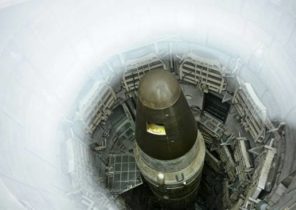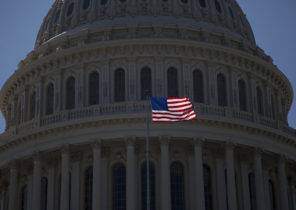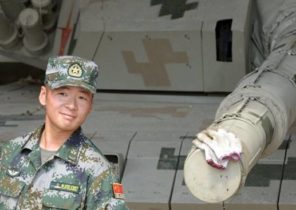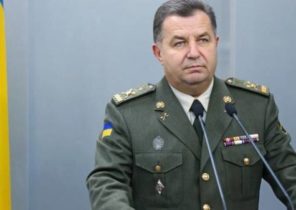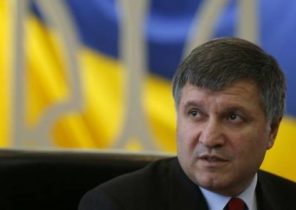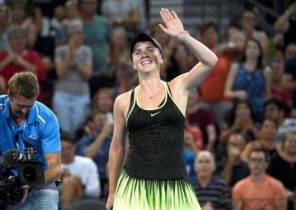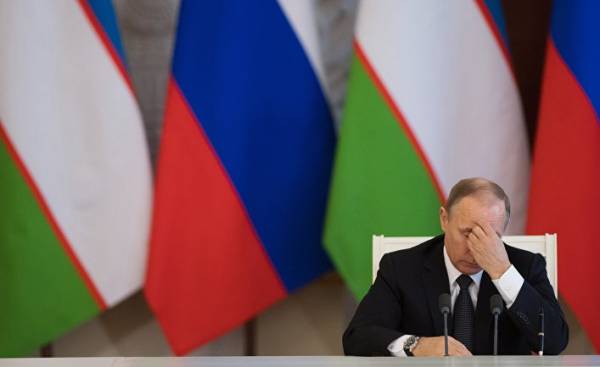
The fact that the presidential elections will be able to hold without difficulty, does not mean that 2018 will not create other problems. The real problem-2018 will fail to achieve victory in the first round or to ensure a high turnout, and the disparity between the expectations of Russian society and the decisions that will inevitably have to take power after the elections.
Recently in Russia a lot of talk about the problem-2018, keeping in mind the presidential election. In fact, this problem does not exist, but there is another, much more significant. It can be prolonged for several years, but it will start in the same 2018.
The imaginary problem
The presidential elections of 2018 will benefit Vladimir Putin. This scenario can be revised only in one case — if for whatever reasons the current President will refuse to participate in elections. The closure of the Russian policy does not allow to completely abandon this scenario. However, even if it is implemented, the end result will not change: the successor will have at its disposal all the resources of power and blessing predecessor, but to win in the current environment this will be enough.
But let’s assume that will participate in the elections Vladimir Putin. In this case in his favor will work for several reasons. First, the approval rating of the President, one of the pillars of the political regime. Now he is at a very high level (as of March 2017, according to the Levada center, it is 82%), and nothing suggests that situation will change fundamentally in the course of the year. The state has the funds to continue to fulfill our social obligations: the Reserve Fund has not been exhausted. Society is tired, it is configured depressive, but not dramatically — and it is doubtful that a year of his radicalization increased enough to affect the attitude of the President, which people used to perceive as a factor of stability. So until 2018, will not disappear familiar to Russian history the image of a good king, which is not responsible for the acts of bad barons.
Second, the participants of the election looks predictable, and none of the competitors Putin voters do not see the President. Even many supporters of Gennady Zyuganov and Vladimir Zhirinovsky do not think they are real candidates and voting for them for reasons unrelated to the chances of winning (the ideological factor in the case of Zyuganov; the protests, when we are talking about Zhirinovsky). The same to an even greater extent will apply to any candidate from “Fair Russia”. Grigory Yavlinsky is not able to inspire liberal voters, as reflected in last year’s parliamentary elections. Participation in the elections Alexei Navalny looks incredible, but even if a miracle happens and his name will suddenly be on the ballot, and his voters do not think the future President.
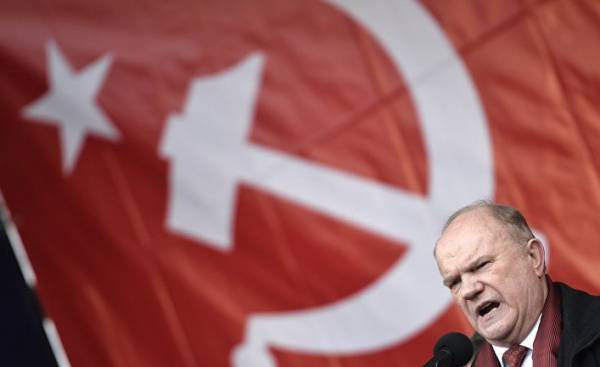 © RIA Novosti, Ramil Sitdikov | go to fotobasketball of the Political party factions of the Communist party Gennady Zyuganov
© RIA Novosti, Ramil Sitdikov | go to fotobasketball of the Political party factions of the Communist party Gennady Zyuganov
Third, future elections, by definition, will be a plebiscite. That is, most voters will not choose the proposed candidates, and vote for their fate. Figure Putin associate it with the state, whereas the other candidates — “only” policy. To vote against Putin — means to refuse to support their own country, which is opposed to the West. And this is — true, to a much lesser extent than before — the effect of a besieged fortress, in which its commandant, you cannot make a claim in a military environment. Anyone who seriously opposes the commandant (and not just a sparring partner in the electoral game), can be accused of working for the enemy, regardless of is whether it is real or fake arguments.
Of course, the question remains about how that will be achieved a concrete result of Putin — known problem of “70 to 70” (turnout plus score). If the 70% result is achievable, with the turnout in terms of depression, matters may be more complicated. But there are options in the first place the opportunity to vote not in the place of registration. This will help to significantly increase the electorate at the expense of the most socially mobile populations.
The real problem
However, the fact that the presidential elections will be able to hold without difficulty, does not mean that 2018 will not create other problems. The real problem-2018 will be in the mismatch of the expectations of Russian society and the decisions that will have to take power after the elections. Expectations, in General, cannot be considered exaggerated, the Russians do not expect mountains of gold, but expect that their financial situation at least will not worsen, and maybe even a little better. But the projected rate of GDP growth (or rather stagnation) and state budget lead to the fact that even the preservation looks very unlikely.
Now it seems that the state machine is trying to hold on to elections in a de facto ban on the adoption of unpopular decisions. The long history has left a blissful period 2005 to mid-2008 when rapid economic growth seemed to be long term. The story has gone and the period 2009 to 2013, when recovery (do not cause such a whirlwind of optimism) was accompanied by political uncertainty, which later developed into instability and mass protest rallies. But then the state was a powerful economic resource, and now it becomes thinner on the background of low oil prices that can become even lower when you consider the success of shale production in the United States and the extremely negative attitude of the administration of Donald trump to environmental constraints on the development of the oil industry.
Without tough measures to do is impossible, most likely, they will have to complete the second half of 2018. In the expert community are now arguing not about whether to raise the retirement age, and about when and how it should be improved.
“Economic technocrats” insist that women and men should retire at the same time (e.g., 63), citing the longer life expectancy of women. “Social psychologists” are you afraid of the indignation of our citizens, burdened with children and the kitchen, accustomed to carry heavy bags, and considering that the 55-year retirement is too much. Therefore, they advocate a proportional increase in the retirement age for women and men, which, however, is also unlikely to inspire the Russians. In contrast to the monetization of benefits in raising the retirement age is impossible to find advantages for any group of the population, it will suffer and the urban and rural pensioners (from the monetization of the villagers won, so as not enjoyed many of the benefits).
Add to this the likely prospect of raising taxes — such as VAT and personal income tax. For many years Russian businesses have fought for a reduction in VAT, resulting in a variety of arguments, but now he may have to deal with a reverse process. It is clear that the damage from tax increases, the entrepreneur always seeks to pass on to the consumer — so a possible new rise in prices. This is very serious and much more important “passion for Parmesan”, which concerned only the most prosperous part of the population of megacities, not only in the province, but for most residents of the capital’s residential districts, this topic simply did not exist.
Destiny rating
But the key issue to understanding further development of the political situation is the question of the rating of the President — more precisely, its degree of stability. Before the elections serious threats in sight. Even if it is somewhat reduced, the margin of safety is very large.
After the election, fully can manifest several important circumstances, which are visible now. First, support from the king is no guarantee of peace the nobles, as it was immediately after 2014, when the following presidential rose sharply and the ratings of all other institutions of power. Just look at the reaction to the Bulk of exposure in relation to Medvedev. More recently, similar investigations have not caused any serious public backlash, but now the situation has changed. And it’s not just about rallies. According to the Levada center, Medvedev’s popularity from February to March this year fell by ten points — from 52% to 42%. Moreover, the Prime Minister failed to support is not fans Bulk, regularly visiting his website (they have a negative attitude to Medvedev), and the loyalists who continue to support Putin, but word of mouth has learned some information about the revelations. And made hard conclusions.
Second, the “Imperial” image of the current President has not always existed. We will remind that in the beginning Putin was positioned as a military leader, who won the second Chechen war, then as a Manager (at the time of the 2002 census he indicated in the column on the activities the phrase “public services”). Elements of the “Imperial” image first began to appear only in 2007, when the question arose of the future status of Putin — and that’s when part of the elites proposed to formalize its status as “national leader.” Interestingly, while this proposal was rejected, and Putin became Prime Minister under President Medvedev. Of course, he remained the leader of the country, but the Premiership have little in common with the concept of the Kingdom.
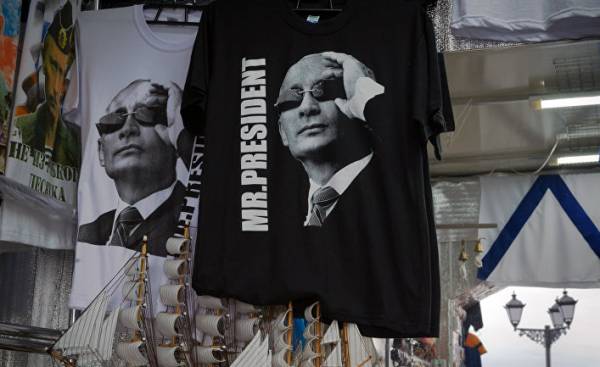 © RIA Novosti, Sergei Maligawa | go to fotobanka with the image of Russian President Vladimir Putin
© RIA Novosti, Sergei Maligawa | go to fotobanka with the image of Russian President Vladimir Putin
The “Royal” image, finally formed only in early 2014, after the annexation of Crimea and the beginning of confrontation with the West, that is, in an emergency situation. Now, however, the extreme ends — both the elite and society are in a state of gradual demobilization. At the end of last — beginning of this year, it was interesting to see the euphoria that many members of the ruling elite felt in connection with the coming to power in the United States Donald trump. They hoped that Russia’s relations with the West back on the almost blissful (compared with current) level of the mid-2000s. the Reality was different, but there is significant is the desire to return to “normality” within the meaning of elite.
It is clear that the Russian elite is playing a very weak role in political decision-making — besides, she less understands the existing rules of the game (especially after the unexpected arrest of the head of Mari El Leonid Markelov, who seemed able to agree on its future destiny). But demobilized and population. More recently, the refusal to broadcast the “Eurovision” would have caused a national emotional support as a step towards justice, a natural response to the banning in Kiev, Russian participants. Now a survey by the Levada center shows that the society is split: 40% of respondents endorsed this step and 41% said no.
Interestingly, two years ago, the Levada center asked respondents another question: does the Donbass Russian military? Was then obtained very interesting data. 37% of respondents stated that they are not there, and 38% chose a different answer — even if they are there, it is not necessary to speak. In the period of mobilization summation of these responses is quite natural, but in General there’s a significant difference: 38% of respondents were not inclined to trust television and the official version of events, but thought that in these particular circumstances acceptable “white lie”.
During the demobilization of this segment of the population begins to experience oscillations (which can be seen in relation to Medvedev). If you use the metaphor of the commandant of the fortress, when the effect of a “besieged fortress” is not just reduced, but reduced to a minimum (which is possible after 2018, barring any extraordinary events related to the new foreign Affairs exacerbation while such events are not visible), the commandant ceases to be beyond criticism.
And finally, thirdly, the difficult socio-economic decisions of Putin’s fourth term can lead to the fact that claims will be made not only to the boyars, but to the Emperor — although to a significantly lesser extent, at least initially. And if so, what political risks after 2018 may gradually increase. So the main thing is not the elections themselves, and the events that will happen after the elections.
